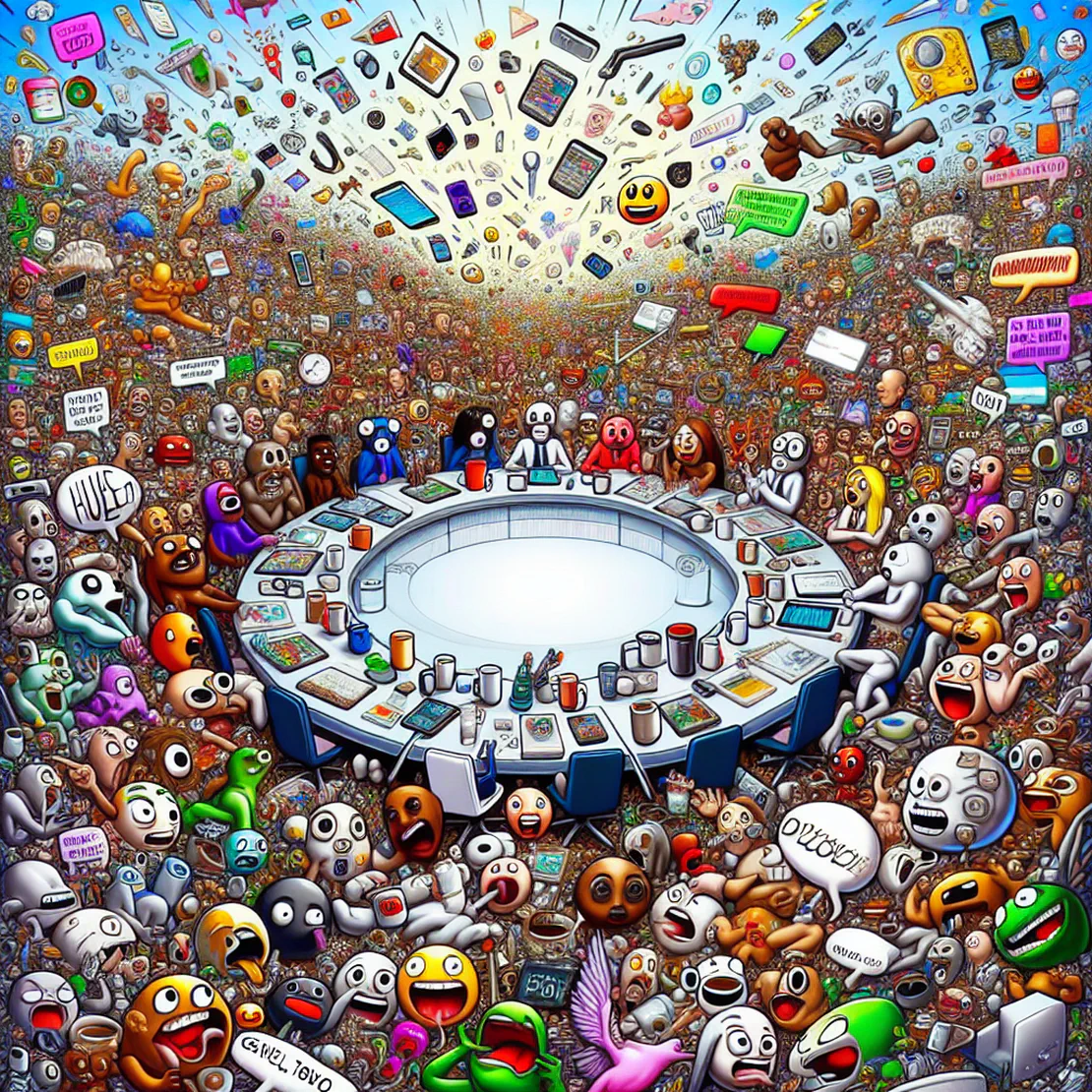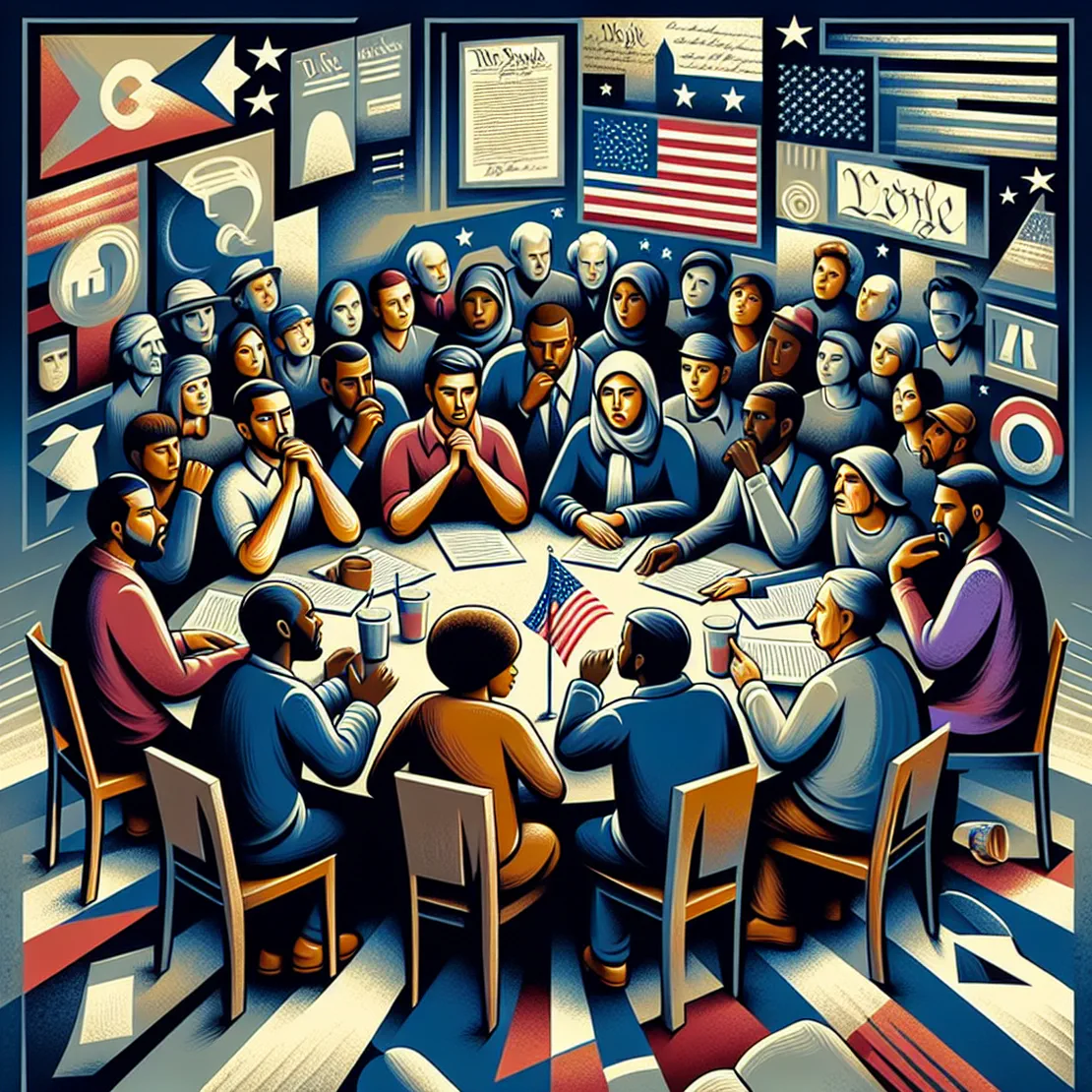
Diddy ARRESTED, Trump Lives, & ShxtsnGigs Apology Reaction
- Andrew Schulz's Flagrant with Akaash Singh
- Healthcare , Education , Technology , Economy , Environment
- September 18, 2024
Table of Contents
At a Glance
-
Trump’s Reaction to Threats - ‘Once you get shot at or people trying to kill you, you can say whatever the fuck you want about it.’ This highlights Trump’s resilience or perceived resilience in the face of threats, adding a layer of complexity to his public persona and how he handles crises.
-
Concerns about Vice Presidential Dynamics - ‘I think we go back to that because then both sides have to put up people who are gonna sort of agree with each other and could win the most amount of votes.’ This point sparks a discussion on historical U.S. electoral practices and their potential impact on modern political strategy, emphasizing the need for unity in leadership.
-
The Sphere’s Impact on Entertainment - ‘I think there’ll be a sphere in every major city, different sizes. Maybe you don’t need a 20,000 seat sphere if you’re in a smaller city, but every city will have one.’ This prediction about the future of live entertainment highlights the revolutionary potential of technological advancements in enhancing viewer experience.
-
The Role of Humor in Politics - ‘Trump should be king… I want him to be part of America, but not in a position where he actually has to make decisions.’ This joke reflects the speaker’s critical stance on Trump’s capability while using humor to underscore the seriousness of leadership roles.
-
Cultural Exchange and Misunderstandings - ‘I saw a guy cutting meat with his big toenail. That’s you. No. I eat the big toenail. But I don’t cut the meat with it.’ This humorous exchange not only provides comic relief but also subtly comments on cultural differences and the misunderstandings that can arise from them.
-
Serious Reflection on Media Bias - ‘It sucks when you’re trying to be fair and down the middle and it’s like you get scrutinized for it.’ This serious note addresses the challenges faced by media personnel in striving for objectivity, highlighting the broader issue of bias and public expectation in journalism.
-
Zoom Class Chaos - ‘They want to group and come at me, they can come at me. I don’t give a shit about them. Who are they? They are nothing.’ Showcasing a dramatic and humorous moment from a Zoom class, this quote reflects the unexpected and often chaotic reality of virtual education, resonating with many who have experienced similar situations.
What to Do
-
‘Protect your community’ - Emphasizing the importance of safeguarding the interests and well-being of the community, especially in the context of public discourse or media.
-
‘Do not apologize if it empowers detractors’ - Suggesting that unwarranted apologies can sometimes strengthen the position of critics, which might not be beneficial if the criticism is unfounded.
-
‘Keep pushing forward despite mistakes’ - Encouraging resilience and learning from errors rather than being hindered by them.
-
‘Enjoy the company of close friends’ - Highlighting the value of spending quality time with friends for emotional and mental support.
-
‘Embrace the joy in your work and experiences’ - Reflecting the importance of finding fulfillment and happiness in one’s professional and personal life.
-
‘Be mindful of your public statements’ - Advising caution with public communications to avoid misunderstandings or negative repercussions.
-
‘Remember the impact of your words’ - Reminding of the potential consequences that careless or offensive language can have on others.
-
‘Appreciate what you have’ - Stressing the significance of gratitude in maintaining a positive outlook and strengthening relationships.
What to Get
-
Sunglasses - Amazon - Used by Biden in a meme to portray a character called “Dark Brandon.”
-
Basketball - Incorrectly about to be mentioned as a DJ song by Shaquille O’Neal, but actually his professional sport.
-
Watermelons - Cut open and screamed into by a person on Indian Instagram, used for creating engaging content.
Summary
The podcast episode delves into a vibrant discussion about the evolution and impact of memes in contemporary culture, highlighting how they’ve transitioned from novel expressions to more complex, layered jokes that often may not be comprehensible to the average person. The speakers discuss how memes initially sparked significant reactions but now tend to feel redundant and are often manipulated by large corporations and political campaigns, losing their authenticity in the process.
The conversation shifts to discuss how memes and internet culture intersect with political campaigns, citing examples like the “Dark Brandon” meme associated with President Biden. The speakers critique how both the Trump and Biden campaigns attempt to leverage internet culture to gain traction but often fail to maintain genuineness and end up feeling manufactured, much like a streetwear brand losing its edge after partnering with larger, mainstream brands.
Further into the podcast, there is a significant focus on the creators’ community engagement and the backlash they face due to controversial content. The speakers discuss the nuances of comedy and the internet’s cancellation culture, emphasizing the irony of being condemned by individuals who don’t actively engage with the content. They argue that true community supporters understand the context and humor, standing by the creators despite external controversies.
Additionally, the episode touches on personal anecdotes and reflections on their interactions and experiences within their community during tours, highlighting the strong bonds formed and the mutual support received, which contrasts sharply with the online criticisms. This dichotomy illustrates the complex landscape internet personalities navigate — balancing genuine community connections with broader public perception shaped by snippets taken out of context.


